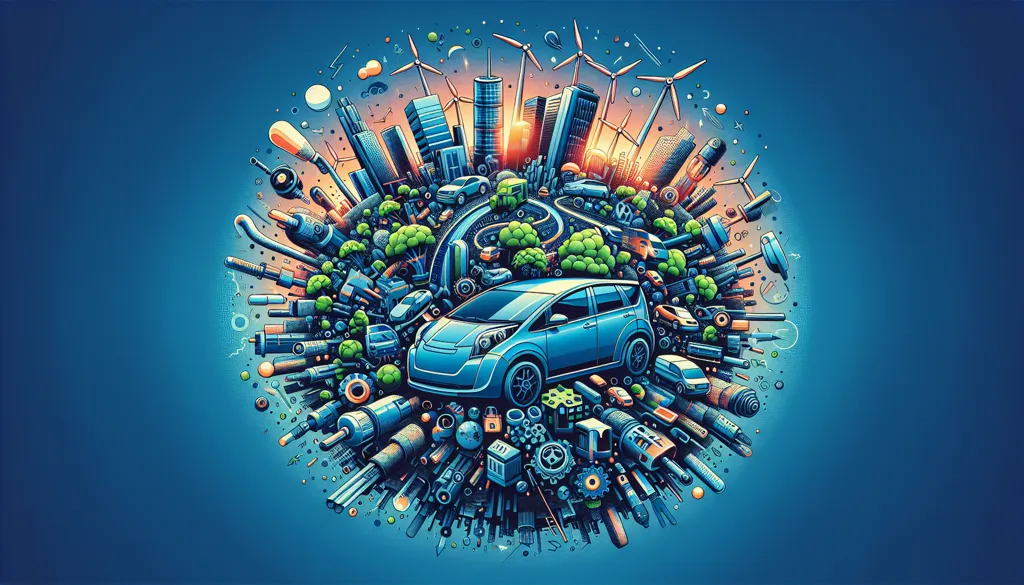The Road Ahead: Navigating the Challenges and Opportunities for Panasonic's De Soto Battery Plant
The announcement of a $4 billion Panasonic factory in De Soto, Kansas, was initially met with optimism. Promising up to 4,000 jobs, the plant was heralded as a significant step forward in the realm of electric vehicle (EV) manufacturing. However, evolving market conditions, policy uncertainties, and wavering EV demand have cast shadows over this ambitious venture.
Market Dynamics and Economic Uncertainty
As the De Soto plant nears completion, Panasonic faces several challenges. The EV market, once booming, is experiencing a downturn in sales. Tesla, a key player in the industry and a major prospective client for the De Soto plant, has reported a significant drop in sales and revenue. These slumps are attributed to a combination of geopolitical tensions, tariff uncertainties, and policy shifts that threaten to diminish the appeal of EVs for consumers.
Federal proposals to eliminate the $7,500 tax credit for EVs and introduce additional charges for EV owners could further dampen consumer enthusiasm. A Harvard study predicts a potential drop in EV market share if these credits are revoked, adding to the uncertainty surrounding the plant's future operations.
Panasonic's Strategic Adjustments
Despite these challenges, Panasonic remains committed to its De Soto project, albeit with strategic adaptations. Initially designed to supply Tesla and Toyota, the plant now plans to serve a broader client base, including Lucid and Hexagon Purus. This diversification is a prudent move, ensuring that the plant isn't overly reliant on any single automaker.
State incentives have played a crucial role in Panasonic's decision to invest in Kansas. The company stands to gain over $800 million in tax incentives, provided it meets certain investment and employment benchmarks. However, critics argue that the lack of stringent job creation requirements could allow Panasonic to benefit from these incentives without delivering on its job promises.
Challenges in the Auto Industry
The auto industry as a whole is grappling with the realities of transitioning to electric mobility. Many manufacturers are revising their EV-only targets due to slower than expected market uptake. Companies like Mercedes, Volvo, and Ford have all announced delays in their electrification timelines, citing challenges such as inadequate charging infrastructure and fluctuating government policies.
This broader industry hesitance underscores the complexities faced by Panasonic. While the demand for EVs is projected to rise in the long term, short-term fluctuations necessitate cautious planning and adaptability.
Opportunities and Long-term Outlook
Despite current setbacks, there are reasons for optimism. EV technology continues to advance, with improvements in battery efficiency and charging speeds. These innovations could reignite consumer interest and drive demand for Panasonic's batteries.
Moreover, Panasonic's presence in Kansas could spur economic growth in the region. As a multinational corporation, Panasonic has the potential to attract ancillary businesses and boost local employment in the long run. The plant's success could also position Kansas as a hub for future energy technologies, aligning with global trends toward sustainability.
Conclusion
As a mother and content writer living in the Midwest, I see the Panasonic plant as a microcosm of the broader challenges and opportunities facing the EV industry. While uncertainties abound, the potential for innovation and economic growth remains significant. It will be crucial for both Panasonic and policymakers to navigate these challenges with foresight and flexibility, ensuring that initiatives like the De Soto plant can thrive in a rapidly evolving landscape.

